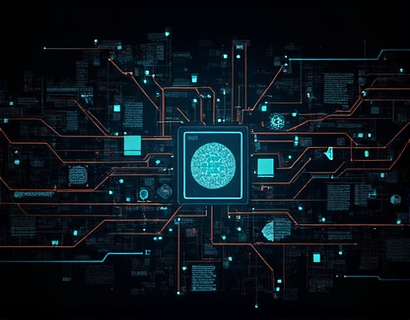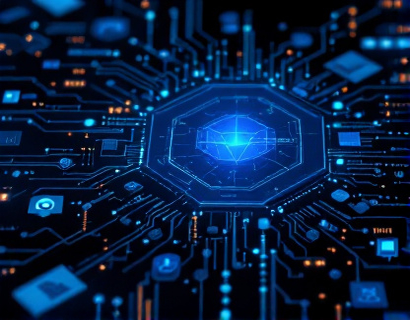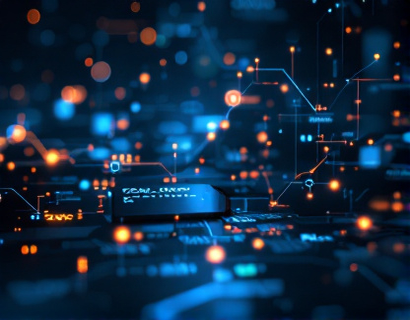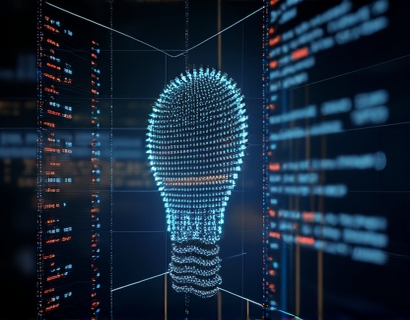Crypto-Powered AI Solutions: The Future of Digital Productivity
The intersection of cryptocurrency and artificial intelligence (AI) is giving birth to a new era of digital productivity tools. These crypto-powered AI solutions are not just innovative; they are set to revolutionize the way we approach daily tasks and enhance our overall work efficiency. For tech enthusiasts and early adopters, this fusion of technologies offers a glimpse into a future where productivity is not only enhanced but transformed.
Understanding Crypto-Powered AI
To fully appreciate the potential of crypto-powered AI solutions, it's essential to understand the basics of both technologies. Cryptocurrency, at its core, is a digital or virtual currency that uses cryptography for security. It operates on a decentralized network, typically a blockchain, which ensures transparency, security, and immutability. On the other hand, AI refers to the simulation of human intelligence processes by machines, particularly computer systems. These processes include learning (the acquisition of information and rules for using it), reasoning (using rules to reach approximate or definite conclusions), and self-correction.
When these two technologies are combined, the result is a powerful tool that leverages the transparency and security of blockchain to enhance AI functionalities. Crypto-powered AI solutions can operate independently of central authorities, reducing the risk of data breaches and ensuring that user data remains private and secure. This is particularly crucial in an era where data privacy is a significant concern.
Enhanced Data Security and Privacy
One of the most compelling advantages of crypto-powered AI solutions is the enhanced data security and privacy they offer. Traditional AI systems often rely on centralized servers, making them vulnerable to cyber attacks and data breaches. In contrast, crypto-powered AI solutions utilize decentralized networks, which distribute data across multiple nodes, making it extremely difficult for hackers to compromise the system.
Blockchain technology ensures that every transaction and data exchange is recorded in a transparent and immutable manner. This means that once data is recorded, it cannot be altered or deleted, providing a high level of accountability. For businesses and individuals, this translates to greater trust in the systems they use, knowing that their data is secure and their privacy is protected.
Decentralized AI Models
Decentralized AI models are a cornerstone of crypto-powered AI solutions. Unlike traditional AI models that are trained on centralized servers, decentralized models distribute the training process across a network of nodes. This not only enhances security but also improves the robustness and accuracy of the AI models.
The decentralized nature of these models allows for more diverse and representative data sets, as data is contributed by multiple participants. This diversity helps in reducing biases and improving the overall performance of the AI. Moreover, since the training process is distributed, it reduces the computational load on any single node, making the system more scalable and efficient.
Tokenization of AI Services
Another innovative aspect of crypto-powered AI solutions is the tokenization of AI services. In this model, AI services are represented as tokens on a blockchain. These tokens can be bought, sold, or traded, providing a new economic model for AI usage.
For developers and businesses, tokenization allows for a more flexible and accessible way to monetize AI services. Instead of relying on traditional licensing models, they can offer their AI solutions as tokens, enabling users to pay for the specific services they need. This not only democratizes access to advanced AI technologies but also creates new revenue streams for developers.
Users, on the other hand, gain a more granular and cost-effective way to utilize AI tools. They can purchase only the AI services they need, without the overhead costs associated with full-scale AI solutions. This token-based approach also fosters a community-driven ecosystem, where users can contribute to the development and improvement of AI models through token rewards.
Use Cases in Digital Productivity
The applications of crypto-powered AI solutions in enhancing digital productivity are vast and varied. Here are some key use cases that demonstrate the transformative potential of these technologies:
1. Smart Contract Automation
Smart contracts are self-executing contracts with the terms of the agreement directly written into code. When integrated with AI, smart contracts can automate complex business processes with higher accuracy and efficiency. For example, in project management, smart contracts can automatically trigger payments to contractors once milestones are met, based on AI-driven performance assessments.
This not only speeds up the workflow but also reduces the risk of human error and fraud. The transparency of blockchain ensures that all parties have a clear and immutable record of transactions, enhancing trust and collaboration.
2. Enhanced Customer Support
Crypto-powered AI chatbots and virtual assistants can provide 24/7 customer support with minimal latency. These AI systems can understand and respond to customer inquiries in real-time, using natural language processing (NLP) to provide personalized and accurate assistance.
By leveraging blockchain, these AI systems can maintain a secure and transparent record of customer interactions, ensuring that user data is protected and that customer service is consistent and reliable. Tokenization can also be used to reward customers for providing feedback or referring new users, creating a mutually beneficial ecosystem.
3. Data-Driven Decision Making
AI-powered analytics tools can process and analyze large volumes of data to provide insights that drive better decision-making. When these tools are crypto-powered, they can operate on decentralized networks, ensuring that data is not only secure but also verifiable and transparent.
For businesses, this means access to high-quality, tamper-proof data that can inform strategic decisions. The use of blockchain-based data sources also allows for the creation of trustless environments, where multiple parties can collaborate without the need for intermediaries, further enhancing efficiency and reducing costs.
4. Content Creation and Management
Content creation and management are critical aspects of digital productivity, and crypto-powered AI solutions can significantly enhance these processes. AI-driven content generation tools can produce high-quality content, from articles to social media posts, at scale. These tools can be powered by blockchain to ensure the authenticity and ownership of content, preventing plagiarism and unauthorized use.
Additionally, blockchain-based content management systems can provide a decentralized platform for creators to upload, share, and monetize their content. This not only empowers content creators but also ensures that they receive fair compensation for their work.
5. Supply Chain Optimization
Supply chain management is another area where crypto-powered AI solutions can bring significant improvements. By integrating AI with blockchain, companies can achieve end-to-end visibility and traceability of their supply chains.
AI can predict demand, optimize inventory levels, and identify potential bottlenecks, while blockchain ensures that all transactions and movements are recorded securely and transparently. This combination reduces fraud, improves efficiency, and enhances the overall reliability of the supply chain.
Challenges and Considerations
While the potential of crypto-powered AI solutions is immense, there are several challenges and considerations that need to be addressed:
1. Regulatory Uncertainty
The regulatory landscape for both cryptocurrency and AI is still evolving. Businesses and developers must navigate a complex and often uncertain regulatory environment, ensuring compliance with local and international laws. This requires ongoing monitoring and adaptation to changes in regulations.
2. Technical Complexity
Integrating blockchain and AI technologies is technically challenging and requires a high level of expertise. Developers need to have a deep understanding of both domains to create robust and efficient solutions. This can be a barrier for smaller organizations and individuals.
3. Scalability and Performance
While blockchain offers many benefits, it can also face scalability issues, particularly in terms of transaction speed and cost. Ensuring that crypto-powered AI solutions are scalable and performant is crucial for their widespread adoption. Research and development in areas like layer 2 solutions and more efficient consensus mechanisms are ongoing to address these challenges.
4. Energy Consumption
Blockchain, especially those using proof-of-work (PoW) consensus mechanisms, can be energy-intensive. This has raised concerns about the environmental impact of crypto-powered solutions. Transitioning to more sustainable consensus mechanisms, such as proof-of-stake (PoS), can help mitigate these concerns.
Conclusion
The convergence of cryptocurrency and AI is paving the way for a new generation of digital productivity tools that are more secure, efficient, and user-centric. These crypto-powered AI solutions have the potential to transform various industries and aspects of daily life, from content creation and customer support to supply chain management and data analysis.
For tech enthusiasts and early adopters, embracing these innovations can provide a competitive edge and open up new opportunities. As the technologies continue to evolve, the future of digital productivity looks brighter and more promising than ever.










































